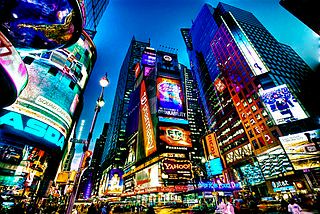From Guest Blogger Blake Meredith: 10 Cities’ Mayors Pledge to Increase Green Efforts
On Wednesday, 10 mayors from 10 different U.S. cities pledged to reduce the greenhouse-gas emissions currently polluting their skylines. For obvious reasons, cities are a major source of carbon-dioxide pollution, due to the high, concentrated amounts of fuel necessary for heating, cooling and lighting. With this winter’s recent cold spells and polar vortex, there is no doubt these cities are not only worried about rising heating costs, but also the drastic increase in fuel usage at a time when global warming fears should be resulting in reduced energy usage. (For those confused as to how global warming results in cold snaps, see here).
Many of the cities who agreed to participate — Atlanta, Boston, Chicago, Denver, Houston, Kansas City, Mo., Los Angeles, Orlando, Fla., Philadelphia and Salt Lake City — are the same cities who have already put energy efficiency at the top of their priorities. For example, last year Los Angeles began a mandate that requires new and remodeled homes to be built with “cool roofs” that reflect sunlight. For sunny LA, any way to reduce air conditioning usage is a plus. Boston requires energy audits from all building owners and, along with Chicago and Philadelphia, is already tracking energy usage consistently. Houston, besides participating in a voluntary federal program to cut energy waste from commercial and industrial buildings, has also opted to allow renewable energy source plans through power companies like CPL Energy to bring solar and wind energy to urban residents.
The new effort will have the cities working with the Natural Resources Defense Council (NRDC) as well as the Institute for Market Transformation. The goal is to continue to push green building, and focus on reducing energy usage in commercial and apartment buildings. Ideally, the cities would like to save up to $1 billion annually through their efforts, and will work to perfect their plans based on local needs over the next few months.
Currently, Boston is heading the energy efficiency efforts in the United States, and currently stands as the most environmentally friendly city in America. Eight of the 10 partnered cities are within the top 20 most efficient cities, with Los Angeles coming in the 28th spot.
To follow Boston’s footsteps, it seems strongly set goals and government initiatives are the way to go. Boston Mayor Thomas M. Menino has solar panels on his own home, which he says have cut his own electric bills. He is also responsible for the Renew Boston initiative, whi ch provides a slew of incentives for building owners and landowners to increase energy efficiency. The plan offers no-cost energy assessments, and even offers up to $3,000 per home in subsidies for upgrading insulation and as much as $250 to replace energy-wasting wiring. Menino has set a goal of cutting the city’s electricity consumption by 200 megawatts (or enough to power 92,000 homes) and reducing greenhouse gases by more than 20 percent by 2050. Menino says, “I always believed that majors have a responsibility to push the envelope on reducing greenhouse gas emissions.”

